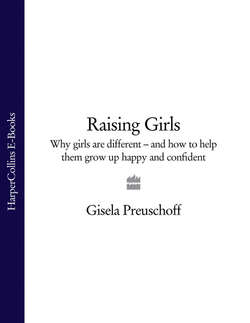Читать книгу Raising Girls: Why girls are different – and how to help them grow up happy and confident - Gisela Preuschoff - Страница 24
Set a good example
ОглавлениеLiving with children means that you must constantly ask yourself, ‘What’s really important for me?’ If you can answer this question, if you know your values and benchmarks, you can set priorities. This has an effect on your entire life, but especially on your family life.
What are your values?
To help you answer this question, here are a few more to get you thinking:
Which is more important to you, financial independence or good relationships with others?
Do you pursue your own dreams or tend to adhere to social conventions?
If you had to compile your own ‘Ten Family Commandments’, what would they be?
What types of memories do you want to look back on when you are old?
How would you like to be remembered by others, including your children?
When my husband and I asked the participants in a seminar for couples to list their life values and compare them with their partners’, there was a commotion. Even people who live with each other often have different values. And there are typical male and female values. Do not criticise your partner if your values seem very different – just seek out the common values. Talk about what a particular value means for you and listen to each other, without judging. If you both listed humour, you’re already on track!
Your children judge you according to the example you set. You will not be credible if you are a chain smoker and yet demand that they maintain a health-conscious lifestyle. And if you like to play with your children, you won’t have to explain that joy in living is important to you; your children will know that!
Honesty is a quality that adults often demand from their children but don’t demonstrate themselves. Examine your conscience – when have you lied, and in what situations have you disowned your convictions? Your children will want to speak to you about this one day. In the wonderful book, Racism Explained to my Daughter, Tahar Ben Jelloun explains his values to his ten-year-old daughter, Meriem. Jelloun, a French writer of Moroccan descent, responds to his daughter’s queries about racism at a time when European nations were exploring how to absorb – or not – people from their former colonies. Jelloun examines the social, political, economic, and psychological aspects of racism, touching on discrimination, religion, genetics, stereotyping, immigration and xenophobia. What he is really talking about is values. The book is easy to read and has been translated into more than a dozen languages. I strongly recommend it to all parents.
As long as you have children asking you questions, you will be challenged to reflect on your life and values. That in itself is important. Even if you hold a view on a particular issue that is completely different from your daughter’s, she will remember the conversation the two of you had about it all her life, if you treat her with dignity and respect. And though she disagrees with you today, it doesn’t mean she won’t agree with you in five years.
